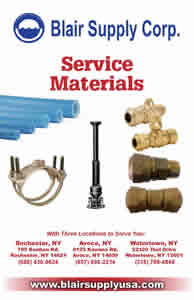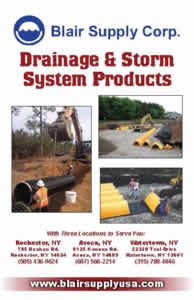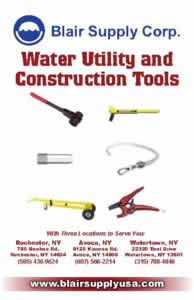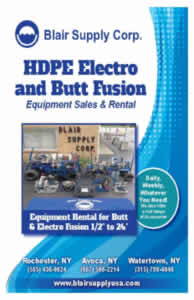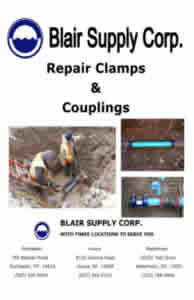Blog
Magnetic Locators Explained

Each day, our ever-advancing technological world imposes new infrastructural requirements. We need new power lines, utility lines, internet lines, and every other type of line imaginable. Now, if all of those were visible, our cities and towns would be jumbled messes of cables and pipes, along with being at the mercy of elements and other malicious factors.
For these (and plenty of other) reasons, most of the essential infrastructure is buried underground and out of sight. However, this presents another problem: maintenance of these key elements is challenging. Primarily because they are difficult to locate with sufficient accuracy so as not to warrant extensive and expensive excavation. Enter magnetic locators.
These handy devices made locating components of underground infrastructure a child’s play. Seeing how magnetic locators can help you work more efficiently and safely while avoiding costly mistakes, as well as them being super-affordable (just search online for, say, “Schonstedt locator for sale”, and you’ll see what we’re talking about), it pays to understand what they are and how they work.
What is a Magnetic Locator?
A magnetic locator, also known as a ferromagnetic locator, is an electronic device used to detect magnetic fields emanating from buried metallic objects. The ease of use and accuracy, as well as high sensitivity and versatility, made locators essential across a number of industries, including:
- Construction: Locating buried metal pipes and rebar in concrete structures.
- Utilities: Locating underground gas and water pipes, valve boxes, and manhole covers.
- Archaeology: Finding buried metallic artifacts.
- Military: Detecting unexploded ordnance and buried metallic objects.
How Does a Magnetic Locator Work?
A magnetic locator consists of two main components: a transmitter (usually located in the sensor probe) and a receiver (typically located inside the control unit).
- The transmitter works on the principle of electromagnetic induction. The device generates a low-frequency electromagnetic field that induces an electrical current in any nearby metallic object. This current, in turn, generates a magnetic field around the object.
- The receiver, which is equipped with a highly sensitive magnetic sensor, detects the magnetic field and converts it into an electrical signal. The receiver’s signal is then amplified, filtered, and processed by the control unit to provide an accurate reading of the magnetic field strength.
The operator holds the receiver and moves it over the ground where the buried metallic object is expected to be located. As the receiver passes over the object, the magnetic field strength increases, indicating the presence of the object.
The sensitivity of the magnetic locator can be adjusted to detect different sizes of metallic objects at various depths. This allows the operator to pinpoint the location of a buried metallic object with great accuracy.
Is a Magnetic Locator the Same as a Metal Detector?
Magnetic locators are often confused with metal detectors, but they are not the same. While both devices share some similarities (mainly in their application), they work on entirely different principles:
- Metal detectors use electromagnetic induction to detect changes in the electrical conductivity of metallic objects.
- Magnetic locators, on the other hand, detect changes in magnetic fields caused by metallic objects.
Metal detectors are more sensitive and can detect smaller metallic objects, but they are not as effective as magnetic locators in locating deep-buried metallic objects, such as key infrastructure components.
 Where can I find the Schonstedt locator for sale?
Where can I find the Schonstedt locator for sale?
Blair Supply Corp. is the leading distributor of prime-grade utility tools and components east of Lake Erie and across the State of New York. We partner with some of the most renowned manufacturers in the industry to bring you top-quality products that help you streamline your project operations and ensure lasting reliability. Reach out to us today for help in finding the best magnetic locator to suit your needs, as well as the variety of equipment that makes your job easier and more productive.

 Where can I find the Schonstedt locator for sale?
Where can I find the Schonstedt locator for sale?